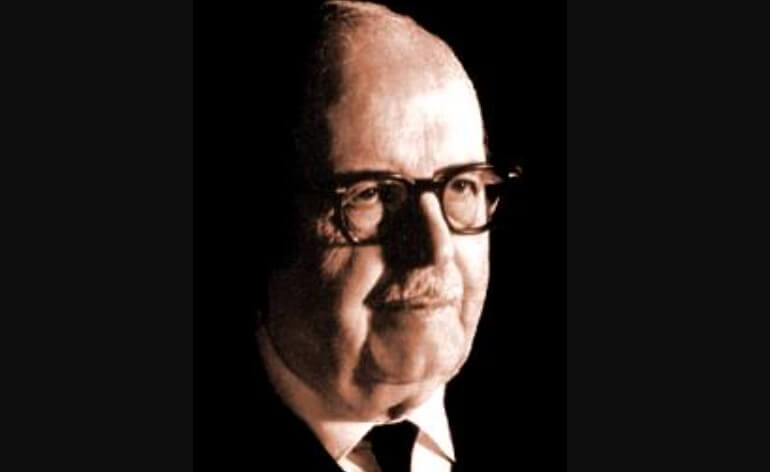Discover the remarkable life and groundbreaking contributions of Bernardo Houssay, the Argentine physiologist who won the Nobel Prize in Physiology or Medicine in 1947. Explore his studies on blood sugar regulation, diabetes research, and the establishment of scientific research in Argentina.

Bernardo Houssay was an Argentine physiologist known for his pioneering research in the field of endocrinology. In a concise definition, Bernardo Houssay can be described as:
Bernardo Houssay (1887-1971): An Argentine physiologist renowned for his significant contributions to the understanding of hormonal regulation and physiology, particularly his groundbreaking research on the role of the pituitary gland in regulating glucose metabolism. He was awarded the Nobel Prize in Physiology or Medicine in 1947 for his work in this field.
Biography
Bernardo Alberto Houssay was born on April 10, 1887, in Buenos Aires, Argentina. He would go on to become one of the most prominent physiologists of the 20th century, known for his groundbreaking research in endocrinology.
Houssay’s early education was impressive, and he graduated from the University of Buenos Aires with a degree in medicine in 1911. He then pursued further studies in Europe, where he worked with renowned scientists such as Sir Henry Dale and Sir Frederick Gowland Hopkins in England and August Krogh in Denmark. These experiences greatly influenced his research interests and methodologies.
Upon returning to Argentina, Houssay embarked on a prolific scientific career. He focused on the study of hormones, particularly the role of the pituitary gland in regulating various physiological processes, most notably glucose metabolism. His groundbreaking experiments in the 1920s demonstrated that the anterior pituitary gland played a crucial role in regulating blood sugar levels. This discovery had profound implications for understanding diabetes and endocrinology in general.
In recognition of his outstanding contributions to physiology and endocrinology, Bernardo Houssay was awarded the Nobel Prize in Physiology or Medicine in 1947. He became the first Argentine scientist to receive this prestigious honor.
Throughout his life, Houssay continued to advance the field of physiology and mentored numerous students and researchers. He played a significant role in the development of scientific research and education in Argentina and was instrumental in the establishment of the Institute of Biology and Experimental Medicine (IBYME) in Buenos Aires, where he served as its director.
Bernardo Houssay’s legacy extends far beyond his Nobel Prize. He was a dedicated scientist, teacher, and advocate for scientific progress in Argentina and beyond. He passed away on September 21, 1971, leaving behind a lasting impact on the field of physiology and endocrinology, both in his home country and internationally. His work remains influential and continues to inspire future generations of scientists.
Contributions to Science, Studies and Discoveries
Bernardo Houssay made numerous significant contributions to the field of physiology and endocrinology throughout his career. Some of his notable studies and discoveries include:
- Regulation of Blood Sugar Levels: Houssay’s groundbreaking work in the 1920s revealed the role of the anterior pituitary gland in regulating blood sugar levels. His experiments with hypophysectomized (pituitary gland-removed) dogs showed that these animals developed symptoms similar to diabetes. This discovery laid the foundation for understanding the hormonal regulation of glucose metabolism and had profound implications for diabetes research.
- Diabetes Research: Houssay’s research on the pituitary gland’s influence on glucose metabolism led to a better understanding of diabetes mellitus. His work contributed to the development of insulin therapy for diabetes and shed light on the hormonal mechanisms behind the disease.
- Hormonal Control of Water Balance: Houssay also conducted research on the pituitary gland’s role in regulating water balance in the body. His investigations into the antidiuretic hormone (ADH) provided insights into the hormonal control of fluid and electrolyte balance.
- Hormonal Control of Blood Pressure: He made significant contributions to the study of hormones’ effects on blood pressure regulation. His work on the renin-angiotensin system, which plays a crucial role in controlling blood pressure, advanced our understanding of hypertension and its treatment.
- Establishment of Scientific Research in Argentina: Houssay played a pivotal role in promoting scientific research and education in Argentina. He helped establish the Institute of Biology and Experimental Medicine (IBYME) in Buenos Aires, where he fostered a conducive environment for scientific inquiry. His efforts contributed to the growth of scientific research in his home country.
- Nobel Prize in Physiology or Medicine: Perhaps his most prestigious contribution was being awarded the Nobel Prize in Physiology or Medicine in 1947. He received this honor in recognition of his outstanding research on the physiology of the pituitary gland and its role in regulating various bodily functions, particularly glucose metabolism.
- Mentoring Future Scientists: Houssay was a dedicated teacher and mentor who trained numerous students and researchers in the field of physiology. Many of his mentees went on to make their own significant contributions to science.
Bernardo Houssay’s pioneering research laid the groundwork for our understanding of hormonal regulation in the body, particularly in relation to glucose metabolism and endocrine functions. His work continues to influence the field of physiology and endocrinology, and his legacy lives on through the ongoing research and discoveries inspired by his contributions.